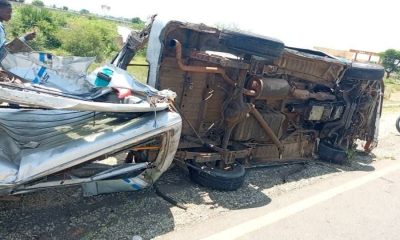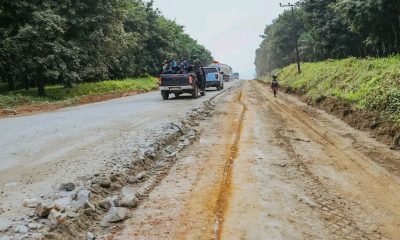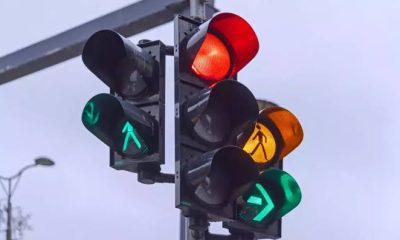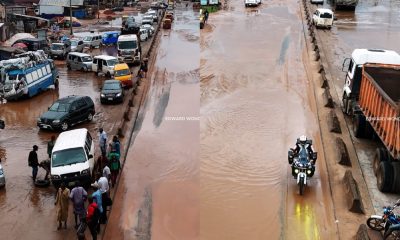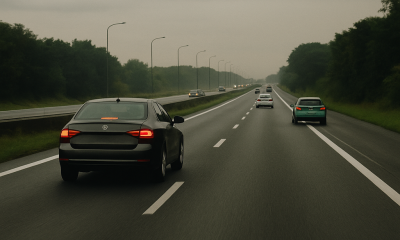Driver Training
Exclusive: The Deadly Shortcut Destroying Nigerian Roads

Every day across Nigeria’s highways, lives are lost in split seconds not because of mechanical failure, not even because of poor road conditions, but because of one dangerous habit: reckless overtaking.
Also Read: Why Distracted Driving is Overtaking Speeding as the Leading Road Killer
From the Lagos-Ibadan Expressway to the Abuja-Lokoja corridor, drivers gamble their lives and the lives of others just to get ahead.
According to the Federal Road Safety Corps (FRSC), reckless overtaking accounts for nearly 18% of fatal crashes nationwide.
This long-form investigation by RoadKing.ng explores the psychology, culture, and systemic failures behind this deadly shortcut, drawing on eyewitness accounts, survivor stories, global comparisons, and expert perspectives.
A Nation Obsessed With “Getting Ahead”
The Traffic Culture
Nigerian traffic culture is heavily influenced by impatience and aggression. In congested cities like Lagos, overtaking is seen as a measure of skill and confidence.
Drivers who stay patiently in lane are mocked as “slow,” while those who weave through traffic are celebrated as “sharp.” This cultural reinforcement makes reckless overtaking not just common, but socially normalized.
The Economic Factor
Commercial drivers, bus operators, truck drivers, and keke riders often work under intense economic pressure. The more trips they complete, the more money they earn. This pressure fuels dangerous habits like overtaking at bends, squeezing between trailers, and ignoring “no overtaking” signs.
The Psychological Illusion
Experts at the Nigerian Institute of Transport Technology (NITT) describe reckless overtaking as a combination of risk-taking, overconfidence, and impatience. Drivers believe they will “get there faster,” even though studies show most overtaking maneuvers save less than 5 minutes on long journeys.
Real-Life Tragedies
Benin–Ore Road (2024): A commercial bus attempted to overtake two trailers at a bend. It collided head-on with an oncoming vehicle. Eleven people died instantly.
Lagos–Ibadan Expressway (2023): A Toyota Corolla driver overtook recklessly in the rain, lost control, and slammed into a fuel tanker. The resulting fire killed three passengers.
Abuja–Lokoja Road (2022): An overloaded bus tried to overtake on a blind spot. It rammed into a truck, causing a pile-up involving five vehicles.
Each of these stories shares a common thread, the driver thought they could “beat the system.”
The Numbers Don’t Lie
18% of fatal crashes in Nigeria (2024) were directly caused by reckless overtaking (FRSC).
Nigeria loses an estimated ₦3 trillion annually to road crashes, medical costs, lost productivity, and vehicle repairs (World Bank).
Lagos and Ogun States account for the highest overtaking-related crashes due to busy intercity expressways.
Expert Voices
FRSC Official, Lagos Sector Command:
“Most of the crashes we investigate on expressways involve overtaking at the wrong time. It’s a problem of discipline not ignorance. Drivers know the rules but refuse to follow them.”
Transport Safety Analyst, Dr. Adebayo Adeola:
“Reckless overtaking is as dangerous as drunk driving. It creates unpredictable traffic flow, leaving other road users with no chance to react.”
International Comparisons
Globally, countries have taken bold steps to reduce overtaking crashes:
- UK: Strict “no overtaking” zones are enforced with cameras and automatic fines.
- India: Similar challenges with reckless overtaking led to double yellow line campaigns, backed by heavy fines.
- South Africa: Regular police patrols and public campaigns have reduced overtaking-related deaths by 20% in five years.
Nigeria lags behind with poor road markings, limited enforcement, and weak driver education.
Why Enforcement Fails in Nigeria
- Weak Road Markings: Many highways lack clear double lines or signage.
- Low Patrol Coverage: FRSC cannot cover thousands of kilometers with limited staff.
- Corruption: Drivers caught overtaking often bribe their way out.
- Public Perception: Many Nigerians see overtaking fines as harassment, not lifesaving enforcement.
Solutions That Can Work
- Road Design: Install speed bumps and rumble strips at black spots.
- Enforcement: Expand patrols, introduce cameras, and enforce on-the-spot fines.
- Driver Education: Driving schools must emphasize overtaking rules.
- Public Awareness: Campaigns like “Overtaking Wrongly = Overturning Lives”.
- Legislation: Stricter penalties, including license suspension for repeat offenders.
Survivor’s Story
“I was traveling on the Benin–Ore road when our driver insisted on overtaking a trailer on a blind bend. The next thing I saw was an oncoming bus. He swerved too late, and we collided. I lost two friends in that crash. Till today, I can’t sit in the front seat of a bus without panic.”
Ngozi, crash survivor
Conclusion
Reckless overtaking is more than bad driving, it is a time bomb killing thousands of Nigerians yearly. Until the government enforces discipline and drivers change their mindset, Nigeria’s highways will remain unsafe. The choice is simple: wait a few seconds or risk losing everything.

